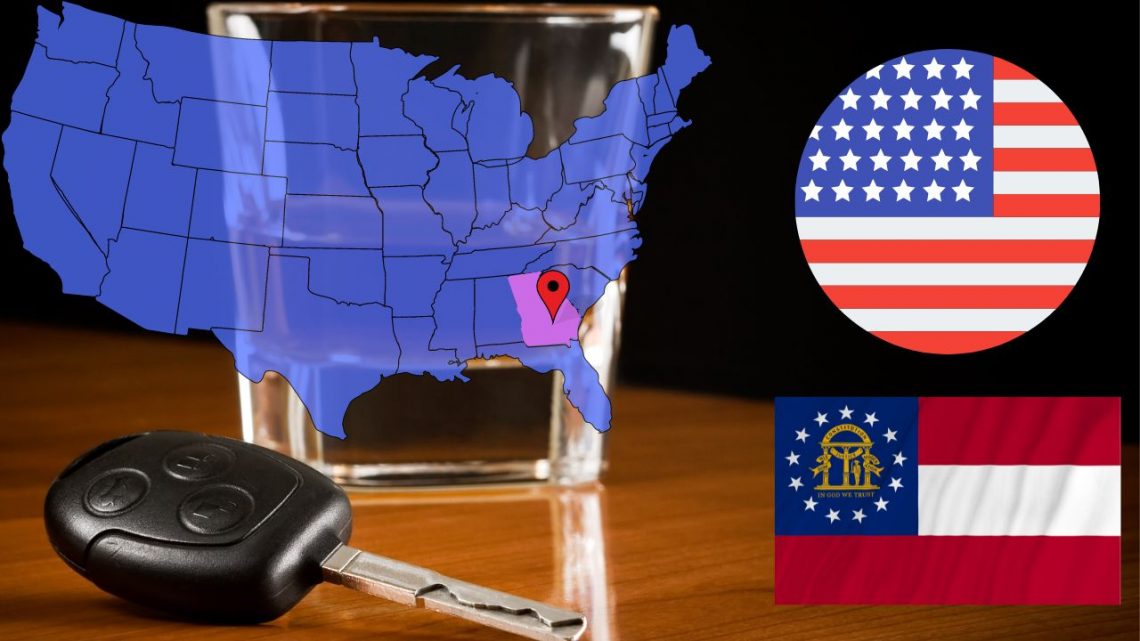In Georgia, the legal limit for blood alcohol content is capped at 0.08%, equivalent to 80 milligrams of alcohol per 100 milliliters of blood.
What is the legal alcohol limit for driving in Georgia?
In Georgia, the legal alcohol limit for driving varies depending on the driver’s category to ensure safety on the roads. Each category has a specific threshold for blood alcohol content (BAC) that legally defines intoxication:
- Regular Drivers: The BAC limit is set at 0.08%. This applies to most drivers operating personal vehicles.
- Commercial License Holders: For those holding a commercial driver’s license, the BAC limit is stricter at 0.04%, reflecting the higher responsibility associated with operating commercial vehicles.
- Minors (Under 21): Georgia enforces a zero-tolerance policy for underage drinking and driving. It is illegal for minors to drive with any detectable amount of alcohol in their system, aiming to discourage drinking and driving from a young age.
Drink and Drive Penalties and Punishments in Georgia
Georgia’s approach to combatting impaired driving includes a comprehensive set of laws and penalties aimed at deterring individuals from driving under the influence of alcohol or drugs. The state’s impaired driving laws are designed to penalize offenders severely, with the severity of the punishment escalating with each subsequent offense. It’s important for drivers in Georgia to be aware of these laws and the consequences of violating them. Additionally, laws and penalties can change, so it’s advisable to frequently check the official state website for the most current information.
Georgia’s Impaired Driving Laws & Penalties:
First Offense:
- Jail time: Up to one year possible.
- Fine: Minimum of $300, up to $1,000.
- License suspension: Up to one year.
- Community service: Minimum mandatory 40 hours.
- License reinstatement fee: $210.
Second Offense Within Five Years Of First Offense:
- Jail time: Minimum mandatory 48 hours, possible 90 days to one year.
- Fine: Minimum of $600, up to $1,000.
- License suspension: Three years.
- Community service: Minimum 30 days.
- License reinstatement fee: $210.
- A mandatory clinical evaluation and, if necessary, completion of a substance abuse treatment program at the offender’s expense.
Third Offense Within Five Years Of Second Offense:
- Jail time: Minimum mandatory 15 days.
- Fine: Minimum of $1,000, up to $5,000.
- License revocation: Five years.
- Community service: Minimum mandatory 30 days.
- Publication of violator’s name, photo, and address in local newspaper at violator’s expense.
- Declared as a habitual violator; license plate seized and forwarded to the Department of Motor Vehicle Safety.
- A mandatory clinical evaluation and, if necessary, completion of a substance abuse treatment program at the offender’s expense.
For the latest updates and detailed information about DUI laws and penalties in Georgia, please visit the official state website regularly.
How Can I Calculate If My Alcohol Blood Limit Is Legal in Georgia?
Understanding your Blood Alcohol Content (BAC) is crucial for responsible driving, especially in states like Georgia where the legal limits are strictly enforced. Police in Georgia determine a driver’s BAC level primarily through breathalyzer tests during traffic stops or sobriety checkpoints. These devices measure the amount of alcohol in your breath and convert it to an estimate of your blood alcohol concentration, which must not exceed the legal limit of 0.08% for most drivers, 0.04% for commercial drivers, and virtually 0.00% for drivers under 21.
For those concerned about staying within legal limits, here are two recommended ways to check your BAC level:
- Use a High-Quality Alcohol Breathalyzer: From my decade-long experience as a phlebotomist, the most accurate portable breathalyzer I’ve encountered is the BACtrack S80. It’s renowned for its professional-grade accuracy and is both DOT & NHTSA approved and FDA 510(k) cleared, making it a reliable choice for personal BAC testing. Having a BACtrack S80 in your vehicle can be a prudent way to ensure you’re not inadvertently over the legal limit; many residents in Georgia might not accurately gauge their impairment level, risking DUI charges.
- Utilize a BAC Calculator Online: Alongside other experienced phlebotomists and with the assistance of web developers, I’ve helped create an online BAC calculator. This tool is designed to give you a rough estimate of your BAC based on factors such as the quantity of alcohol consumed, your weight, and the time elapsed since drinking. While this method also isn’t 100% accurate, it can provide a valuable reference point to help you make informed decisions about your ability to drive safely.
It’s important to note that both these methods, while helpful, do not guarantee absolute accuracy. Factors like metabolism, food intake, and individual health conditions can affect your BAC level. Therefore, they should be used as tools for guidance rather than definitive measures. The safest approach is always to err on the side of caution and avoid driving if there’s any doubt about your sobriety. This mindset is not only a legal imperative but a moral one, ensuring the safety of yourself and others on the road.
Ways to Avoid Driving with a High BAC in Georgia

Driving under the influence of alcohol poses serious risks, not only to the driver but also to others on the road. Georgia, like many states, enforces strict DUI laws to combat impaired driving. Fortunately, there are convenient and responsible alternatives to driving if you’ve consumed alcohol and are concerned about your Blood Alcohol Content (BAC) level. Here are some practical suggestions for those looking to stay safe and avoid DUI charges in Georgia:
- Utilize Ride-Sharing or Taxi Services: One of the simplest ways to avoid driving after drinking is to use ride-sharing apps like Uber or Lyft. These services offer a safe and reliable way to get home without having to get behind the wheel. For those who prefer traditional taxis, local companies such as Cascade Cab Co in Atlanta or Elite Cab Company in Columbus provide excellent services. These options are readily available and can be accessed quickly through phone apps or by calling directly, ensuring you have a safe ride at your fingertips.
- Order a Designated Driver Service: If you’ve driven to a location and then consumed alcohol, leaving your car behind might not be your preferred option. In such cases, designated driver services offer a great solution. Companies like TRNSPTR LLC in Atlanta or Groome Transportation in Columbus specialize in driving you home in your own vehicle, allowing you to avoid leaving your car unattended. This service can be especially useful for those who may have driven a long distance to attend an event or a gathering. To find a designated driver service near you, a simple Google search for “designated driver service” along with your city name will provide you with options tailored to your location.
These alternatives not only help in avoiding the risks associated with driving under the influence but also ensure that you comply with Georgia’s DUI laws, protecting yourself from legal consequences. Remember, planning ahead is key. Before heading out, consider how you’ll return home safely if you plan to drink. Making responsible choices about your mode of transportation after drinking is a crucial step in safeguarding yourself and others on the road.
Obeying Impaired Driving Laws in Georgia: Sad Statistics
In 2019, Georgia reported 353 alcohol-impaired fatalities, highlighting the critical need for awareness and prevention of drunk driving. Understanding the legal BAC limit is vital for all drivers to ensure their safety and compliance with state laws. The most responsible approach is to avoid driving after consuming alcohol, as it’s challenging to predict your BAC and its impact on your driving abilities. Utilizing an alcohol breathalyzer can offer a more concrete understanding of your BAC, although individual alcohol metabolism rates can vary.
For those who may find themselves in a situation where driving seems necessary, considering alternative transportation methods such as ride-sharing services like Uber, local taxi companies, or relying on a friend for a ride can be life-saving choices. Additionally, for those who prefer not to leave their vehicle behind, designated driver services provide a practical solution. Always remember, the safest strategy is to plan ahead and choose not to drive if alcohol consumption is involved. Staying informed about Georgia’s DUI laws through the state’s official website is also recommended to ensure you’re up to date on all legal requirements and penalties related to DUI offenses.







